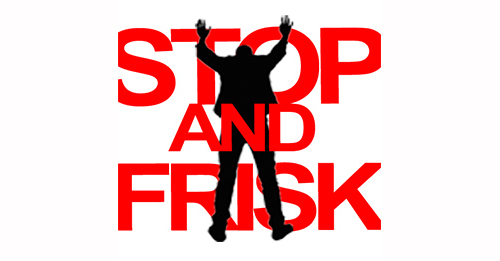
By Jeremy Leaming
New York City’s leaders, most notably its billionaire mayor, are bent on supporting a stop-and-frisk policy that according to the police department’s own numbers overwhelmingly target minorities.
Mayor Michael Bloomberg continues to defend the policy, which allows police officers to stop-and-frisk people in the city on suspicion of criminal activity.
Recently Bloomberg took to a church in Brooklyn to trumpet the policy, saying, “We are not going to going to walk away from a strategy that we know saves lives.” And although he went on to claim city officials would strive to carry out stop-and-frisk “properly,” he has also denigrated Philadelphia’s efforts to reform its frisking policies. “Why would anyone want to trade what we have here for the situation in Philadelphia – more murders, higher crime?” he said in May.
But numbers regarding stops and frisks show that the policy hardly deters crime, let alone saves lives. According to statistics from the New York Police Department more than 680,000 people were stopped in 2011 and in 88 percent of the stops no arrests were made.
The numbers do, however, show that racial profiling is taking place. Of the nearly 686,000 people stopped last year 84 percent of them were black or Latino, The Times reports. Pace University law professor Randolph M. McLaughlin told the newspaper, “People are starting to wonder: ‘What’s really going on here? Is this a racial policy?”
Noting that courts are increasingly assessing stop-and-frisk tactics, McLaughlin added, “And judges read newspapers too.”
In May, U.S. District Court Judge Shira A. Scheindlin permitted a class-action lawsuit against the New York Police Department’s policy, saying she was seriously concerned about officials’ “troubling apathy towards New Yorkers’ most fundamental constitutional rights.”
In her decision, the judge noted that police officers are only allowed to “briefly stop any individual, but only upon reasonable suspicion that he is committing a crime.” She said the Constitution’s Fourth Amendment “is the source of that limitation,” for people have right to be free of unreasonable “searches and seizures.”
Scheindlin also pointed out that it is the responsibility of the court system to ensure that government officials implement law consistent with the demands of the Constitution’s 14th Amendment. New York City like all municipalities is bound to ensure it does not deprive individuals of liberty, including their equal protection rights.
In the case of New York City’s frisking tactics, the judge said it appears they are not being applied properly. Between 2004 and 2009 the NYPD “stopped residents and visitors, restraining their freedom, even if only briefly,” the judge wrote. “Over fifty percent of those stops were of Black people and thirty percent were of Latinos, while only ten percent were of Whites.”
Scheindlin did not conclude that the NYPD’s policy is unconstitutional, only that under federal rules a class-action is permissible to determine whether the department’s tactics are violating constitutional rights of citizens.
Regardless of the rhetoric peddled by Bloomberg, the courts are tasked with safeguarding constitutional rights, so a group of plaintiffs will get to make its arguments that constitutional rights are indeed being trampled.
But while the courts become increasingly involved in determining whether NYPD’s stop-and-frisk is racial profiling, groups such as the New York Civil Liberties Union are helping to educate the public about their constitutional rights.
For instance, the group just released a “stop-and-frisk watch” app for smartphones, with an iPhone version coming later this summer. The app, according to the NYCLU, allows people to record policy stops and alert others to stops in progress. The app also includes information about constitutional rights.
But is it too much to ask that NYC officials brush up on constitutional rights and train their police officers accordingly, instead of harassing minorities and wasting resources on defending in court constitutionally suspect tactics?
Learn more about the racial profiling: Sign up for breaking news alerts, follow us on Twitter, and like us on Facebook.

